

If the year presently coming to a close was a dance, it’d be a hesitant shuffle, tentative steps toward — or heyyyy, maybe away from? — an uncertain future. So maybe that’s why, when we sat down together to discuss which albums we loved the most over the course of 2021, NPR Music’s staff and contributors found ourselves drawn to albums by artists making breakthroughs, moving forward with clarity, without balking at the obstacles falling in their way. Our list of the year’s 50 best is topped by an album that was unmatched in concept, songwriting or performance, but it had so much good company. Everywhere on this list you’ll find the thrill of artistic revelation, musicians finding themselves, willing something new into reality. There’s plenty of fun, but little escapism. Many of these albums are stacked with great songs, but these aren’t snacks. Even when slight they are composed, with a sense of purpose. This is nourishment. Look around. You’ll find something fortifying to build you up for the road ahead.
Stream NPR Music’s 50 Best Albums of 2021:
Spotify / Apple Music / Tidal / Amazon Music / YouTube Music
10.
Wild Up
Julius Eastman, Vol. 1: Femenine

With this jubilant performance, the slow but steady revival of the uncompromising music of Julius Eastman reaches an apex. Eastman was a proudly gay, Black composer whose career swung from critical success to downward spiral. He died alone and misunderstood at age 49 in 1990, with his compositions scattered to the winds. Femenine is a 67-minute, minimalist groove that mesmerizes with its evolving variations on the opening two-note theme in the vibraphone, and delights with its jazz-inspired solos for flugelhorn, piccolo, piano and voice. To hear Wild Up’s performance in a single sitting is nothing short of sheer bliss. —Tom Huizenga
◆ Read a profile of composer Julius Eastman
9.
Vince Staples
Vince Staples

Vince Staples puts his hands into the earth of his trauma on his self-titled album, pulling up a set of experiences that feel more deeply rooted than anything he’s ever shared. Known for his brazen storytelling, Staples has tended to express his apprehensions and bravado in more aggressive terms, over beats that are meant to unsettle you. Here, with the help of Kenny Beats, who provides Staples with production that feels more introspective than abrasive — see: the undulating album opener “ARE YOU WITH THAT?” and the gently constructed, Fousheé-assisted “TAKE ME HOME” — the MC uses this project to heal the lingering wounds of his losses. —Kiana Fitzgerald
◆ Watch Vince Staples’ Tiny Desk (home) concert
8.
Arlo Parks
Collapsed In Sunbeams
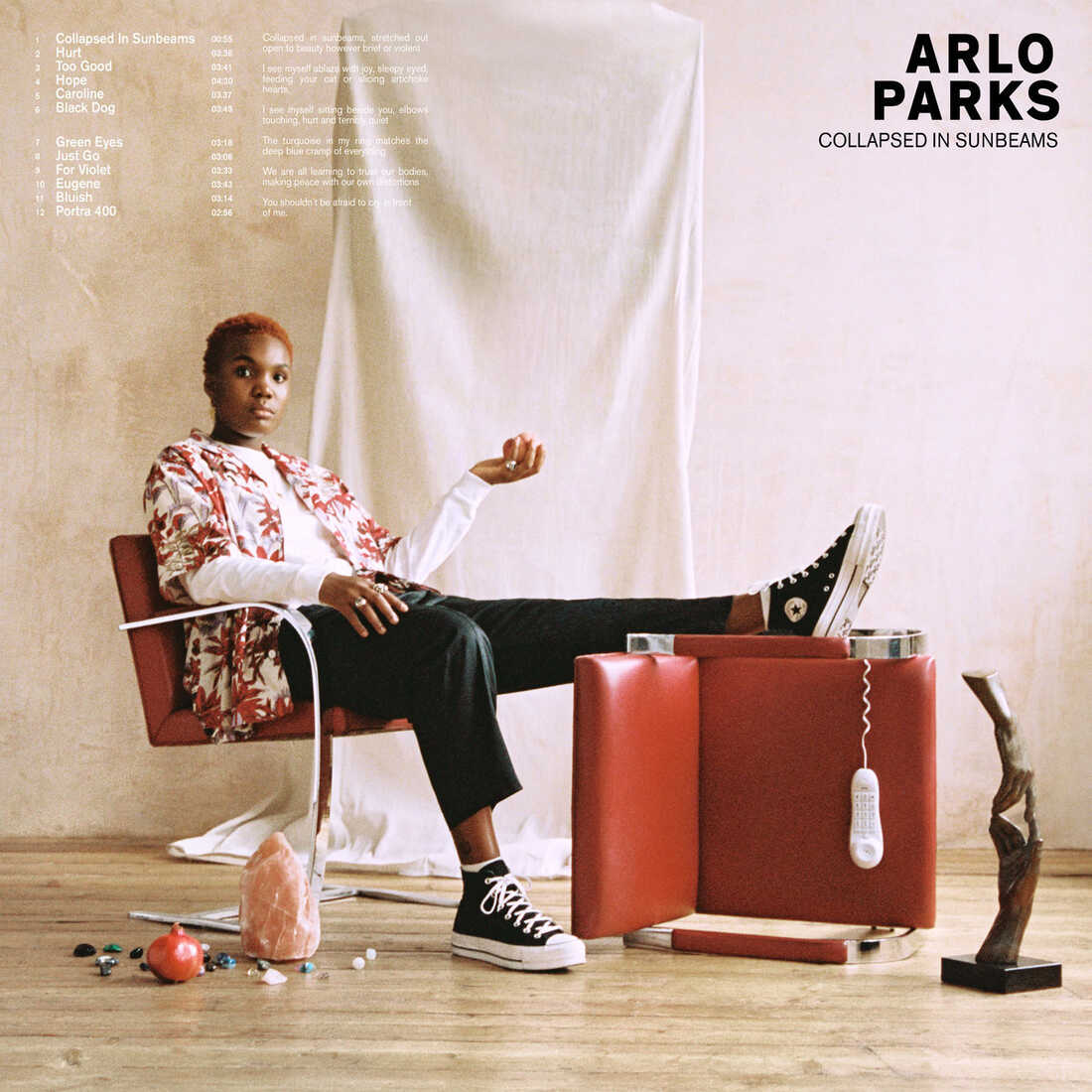
When I begin compiling my list of favorite releases at the end of any given year, I have to refamiliarize myself with those earlier album drops, as records that came out in the latter half of the year have the advantage of being top of mind. But not this time. One of the year’s most powerful releases has been my companion for the entirety of 2021. In January, Arlo Parks came out swinging with her debut full-length, Collapsed In Sunbeams, which went on to win the Mercury Prize for Album of the Year, certified Parks as Best New Artist at the Brit Awards, and garnered her nominations in the same categories at the upcoming 64th Grammy Awards. With the savvy of an industry veteran, the 21-year-old London artist brings a refreshing vulnerability to the landscape of pop through detailed and relatable character sketches. Whether it’s the visceral pain of Charlie, who longs to “feel somethin’ for once” on the track “Hurt” or Millie, who “tried to talk the pleasure back into being alive” on “Hope,” Parks encapsulates the sense of anxiety that’s become a staple of pandemic life and assures us that we’re not alone. —Desire Moses, WNRN
◆ Watch Arlo Parks’ Tiny Desk (home) concert
7.
Arooj Aftab
Vulture Prince
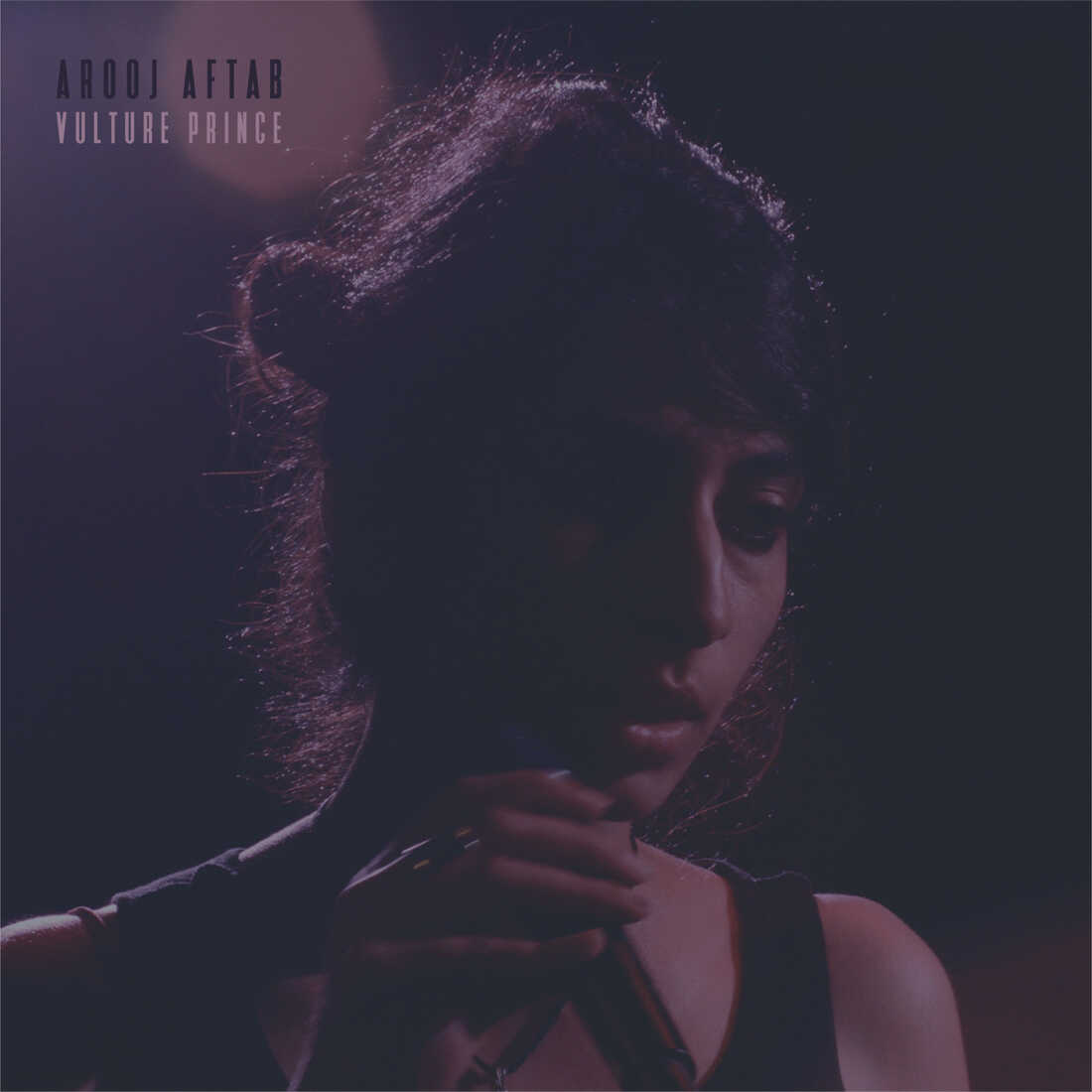
Pakistani-born, Brooklyn-based singer Arooj Aftab updates and reimagines South Asian music with stunning grace. On her third album, Vulture Prince, Aftab’s songs convey longing, hope, grief and loss in songs that never land at the same spot twice: the achingly spare “Saans Lo” wafts like smoke, “Last Night” sets a Rumi poem to a reggae-inspired beat and “Suroor” recalls the searching sounds of Nusrat Fateh Ali Khan. The result hangs together beautifully, as echoes of Sade, Abida Parveen and Jeff Buckley drift comfortably over terrain that spans hundreds of years and thousands of miles. —Stephen Thompson
◆ Listen to an interview with Arooj Aftab
6.
Floating Points, Pharoah Sanders & The London Symphony Orchestra
Promises
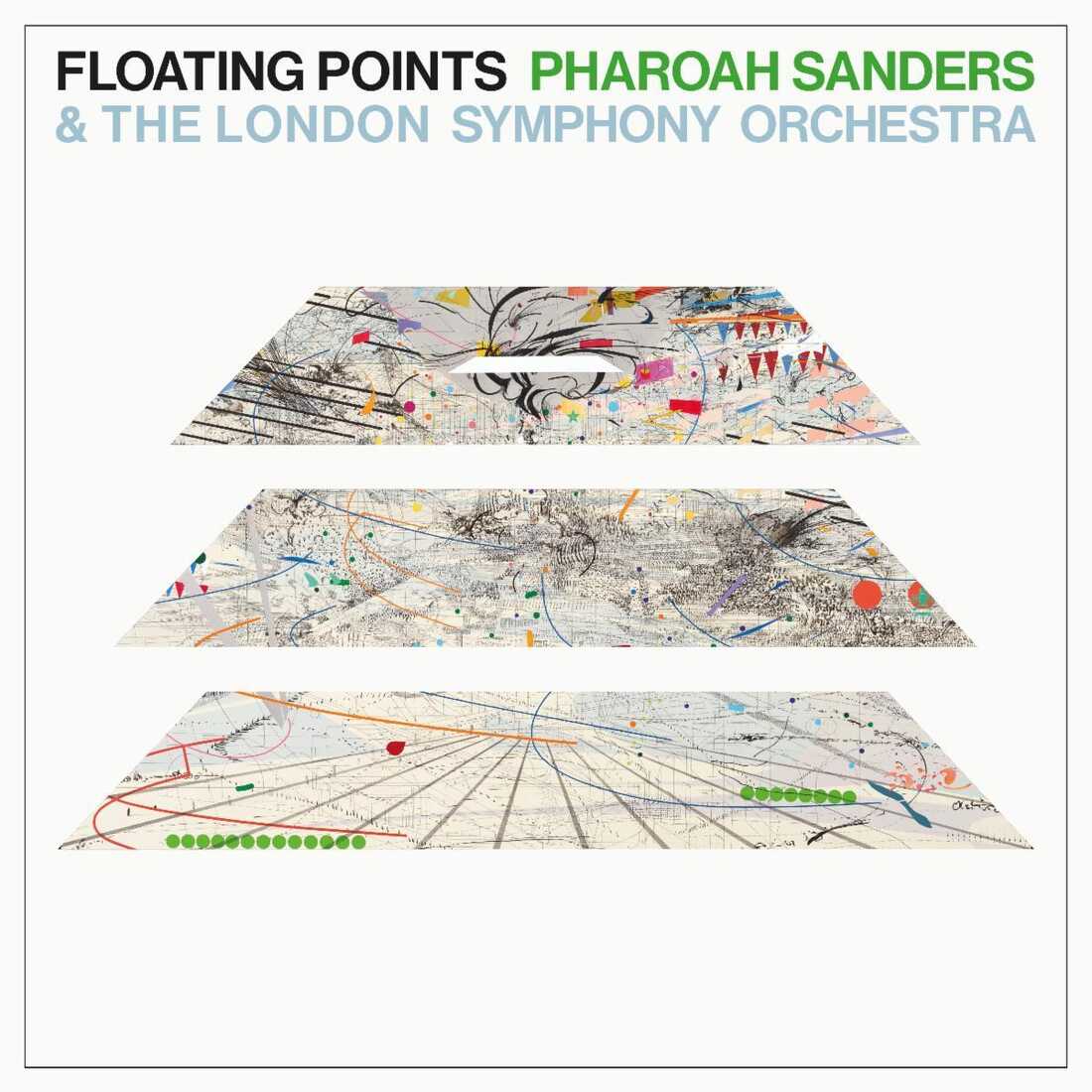
Like any precious and unexpected gift, Promises arrived within a glow of startled gratitude. An elegant, enigmatic collaboration between Floating Points, the meticulous electronic artist, and Pharoah Sanders, the spirit-seeking tenor saxophonist, it’s not quite like anything either artist has made before. Sam Shepherd, who records as Floating Points, composed the piece as a suite for the London Symphony Orchestra, with Sanders drifting in and out of the frame. The result is both minimalist and expansive, owing to its myriad elaborations on a simple form. (Reviewing the album back in March, I characterized its central motif as “a seven-note arpeggio that slowly twirls like a hanging prism as shimmering light passes through.”) This is a work of art that feels more like an experience in the natural world: inexplicable and irreducible, no matter how many times you bask in its light. —Nate Chinen, WBGO
5.
C. Tangana
El Madrileño

The architects of Latin music could not have fathomed, but would likely love, the ways that C. Tangana is playing with the scaffolding of their varied sonic constructs. Forging beyond the surface of the label and its seemingly disjointed parts, C. Tangana suffuses El Madrileño with cross-continental soul in collaboration with a multi-layered list of pan-Latin collaborators. While seamlessly incorporating sounds from across Latin music’s wide range, the unwavering flamenco beats keep the album necessarily grounded in Madrid because, for Tangana, paying homage to your own tradition demands the elevation of others’. —Anamaria Sayre
◆ Watch C. Tangana’s Tiny Desk (home) concert
4.
Allison Russell
Outside Child
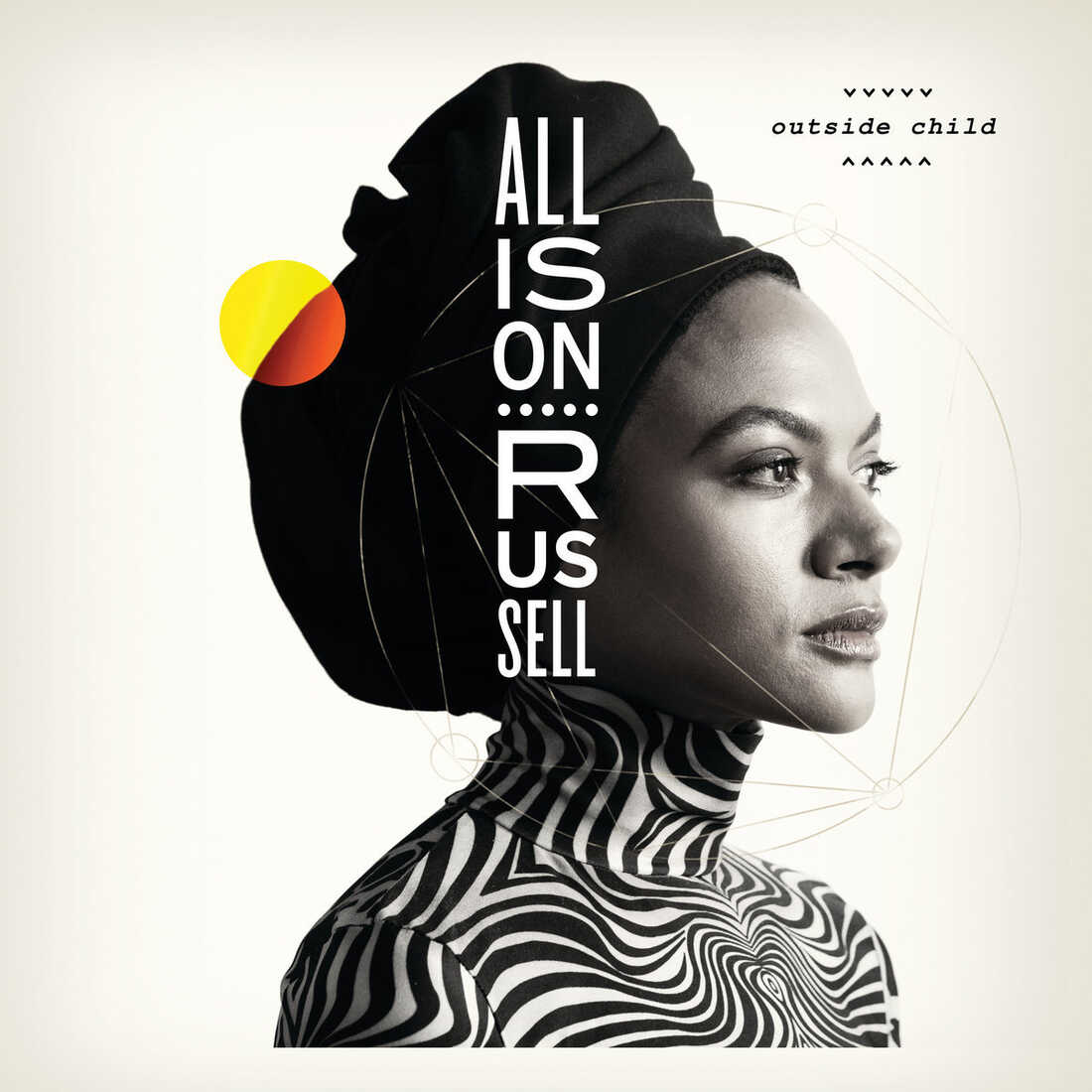
There are many ways to tell a story: Words are only one. Allison Russell, long a light of the Americana scene, recovers her own saga of abuse, escape and recovery in a song cycle as enriched by its multifaceted musical vocabulary as by her poetic lyrics. “Oh my Montreal, can I dream of you tonight,” she begins in her radiant alto, slipping a French verse into a chanson that begins Outside Child‘s journey from childhood sexual abuse to a fugitive adolescence to healing in the arms of chosen family and rock and roll. Recorded in community with her Nashville people, including her partner JT Nero, Yola, Erin Rae and the McCrary Sisters, these songs touch down in country, gospel, blues, folk rondelays, Caribbean diasporic rhythms and troubadour balladry as she unfolds her story like the squares of a quilt threaded with her tears and her blood. The album ends with another wanderer’s chanson, transformed through Russell’s narrative into the kind of anthem sung around a fire in a city alley: “Where in the world are the joyful motherf******? Show ’em what you got in your heart.” —Ann Powers
◆ Listen to an interview with Allison Russell
3.
Lucy Dacus
Home Video
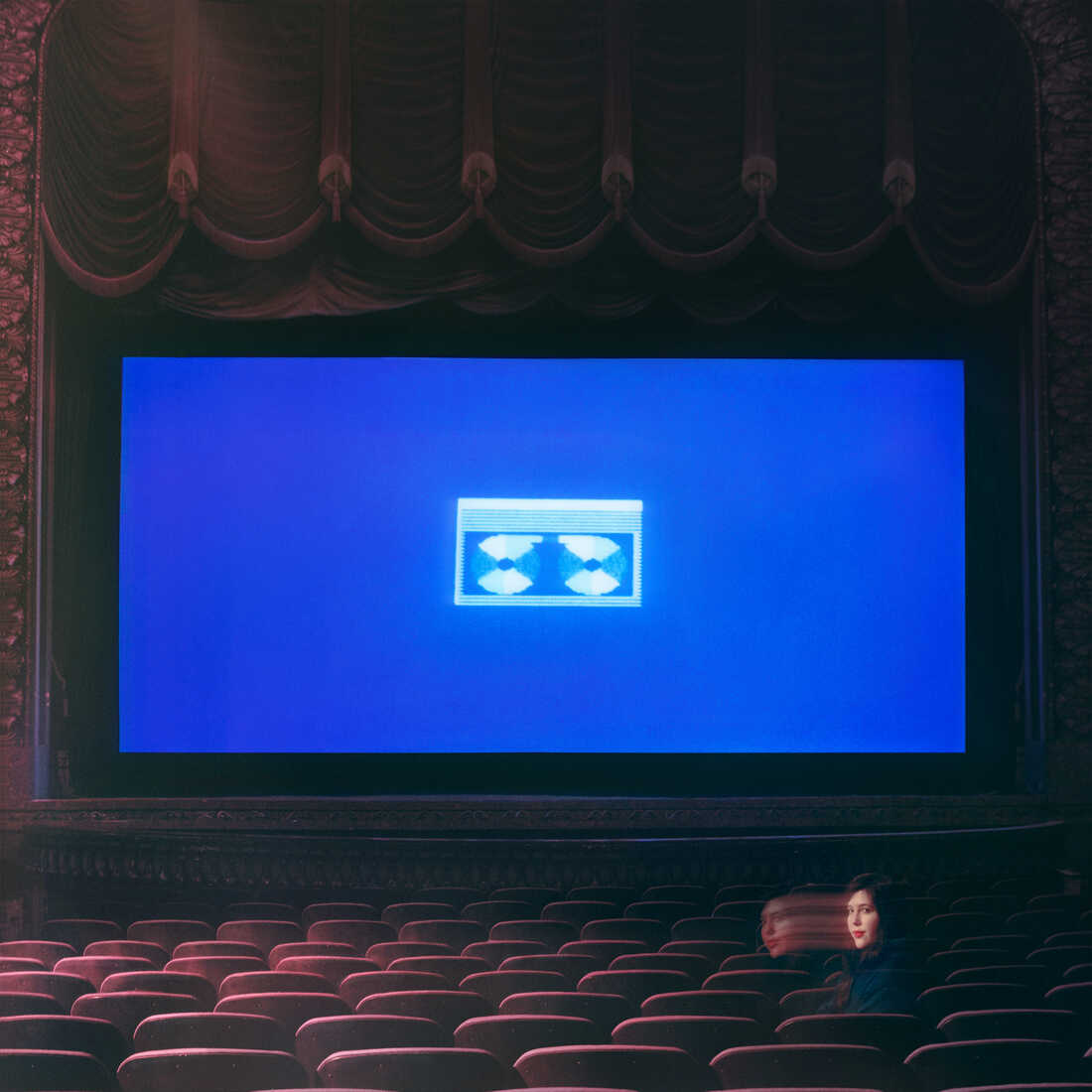
When captivating stories become memorable songs, that’s the perfect formula for a great record. On Home Video, Lucy Dacus reaches into her not-too-distant memories and diary entries from high school, Vacation Bible School and friendships. The resulting songs are filled with the pain of growing up and self-discovery, which at times includes thoughts of violence. “Thumbs” is the most disturbing tune, a song fueled by a violent urge that is sickening for Dacus and for me as a listener, though it’s also a bonding emotion with her friend. This sort of complexity is the brilliance of Home Video. —Bob Boilen
◆ Watch Lucy Dacus’ Tiny Desk (home) concert
2.
Little Simz
Sometimes I Might Be Introvert
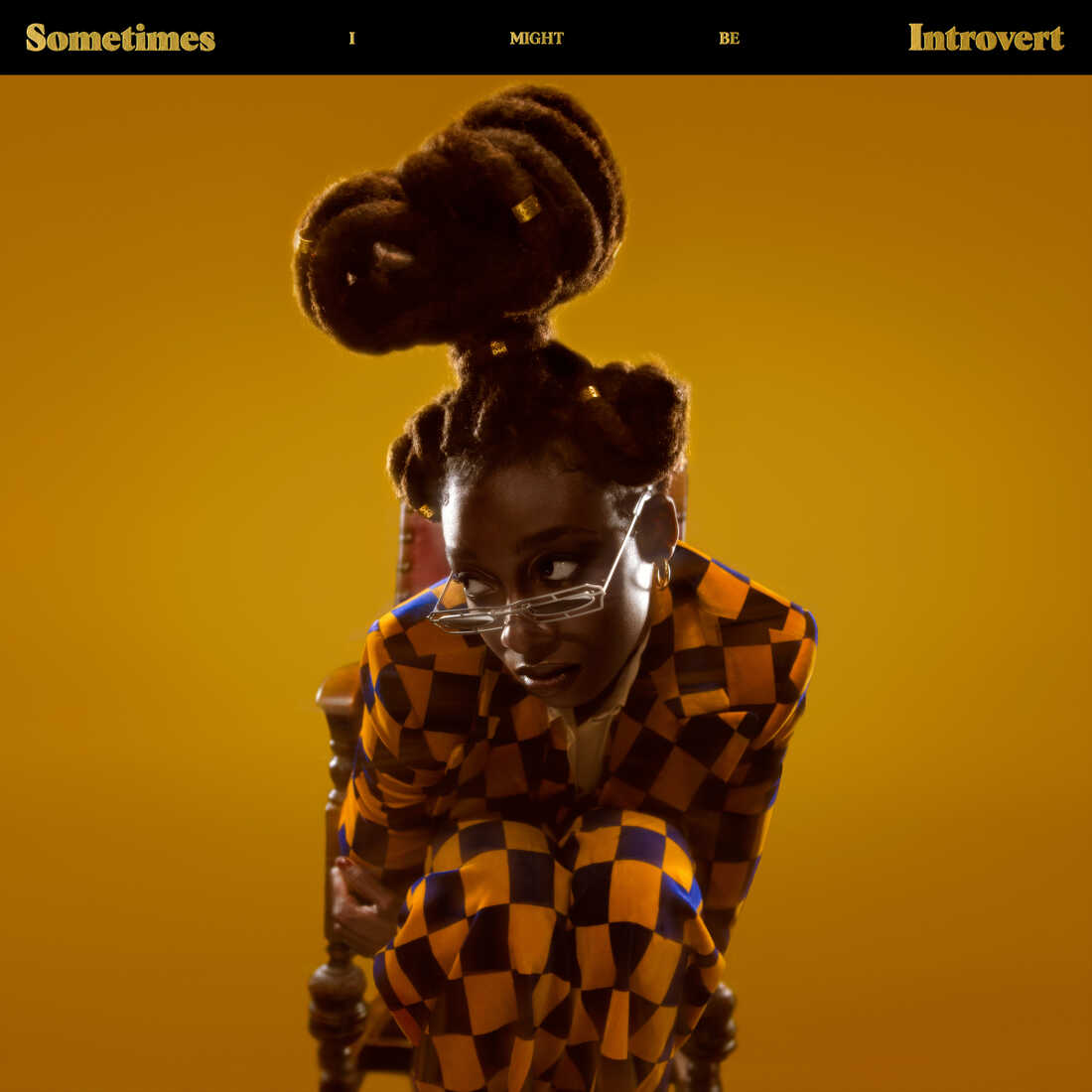
In this classic fairytale of a hip-hop album, where The Crown‘s Emma Corrin serves as both narrator and Little Simz’s subconscious (“A question, if I may — what’s a girl like you want in a place like this?”), the dragon to be slayed is the fundamental misunderstanding of introverts as shy and uncertain, operating at stark disadvantages in an extrovert’s world. We’d be foolish to believe that because of her quiet demeanor, or her flow that’s sneaky instead of showy, Simz should be mistaken as timid. Not with the album’s adventurous detours into grime (“Rollin Stone”), ” 80s R&B (“Protect My Energy”) and Afrobeat (“Point and Kill,” “Fear No Man”), or moments that recall Jay Z at his commercial peak, like “Speed,” with blown-out rap percussion and narrow-eyed fervor directed at those who “wanna put me in a box.” Or with how she contends with her own family history, like in “I Love You, I Hate You,” where she at once airs out her anger and shows empathy toward her absentee father, a coming to terms that can only arrive with age and wisdom, no matter how much potential the precocious artist has always shown. “My speech ain’t involuntary / project with intention straight from my lungs,” Simz declares in “Introvert.” As the herald trumpets make clear, this is a queen’s declaration. —Christina Lee
◆ Watch Little Simz’s Tiny Desk (home) concert
1.
Jazmine Sullivan
Heaux Tales
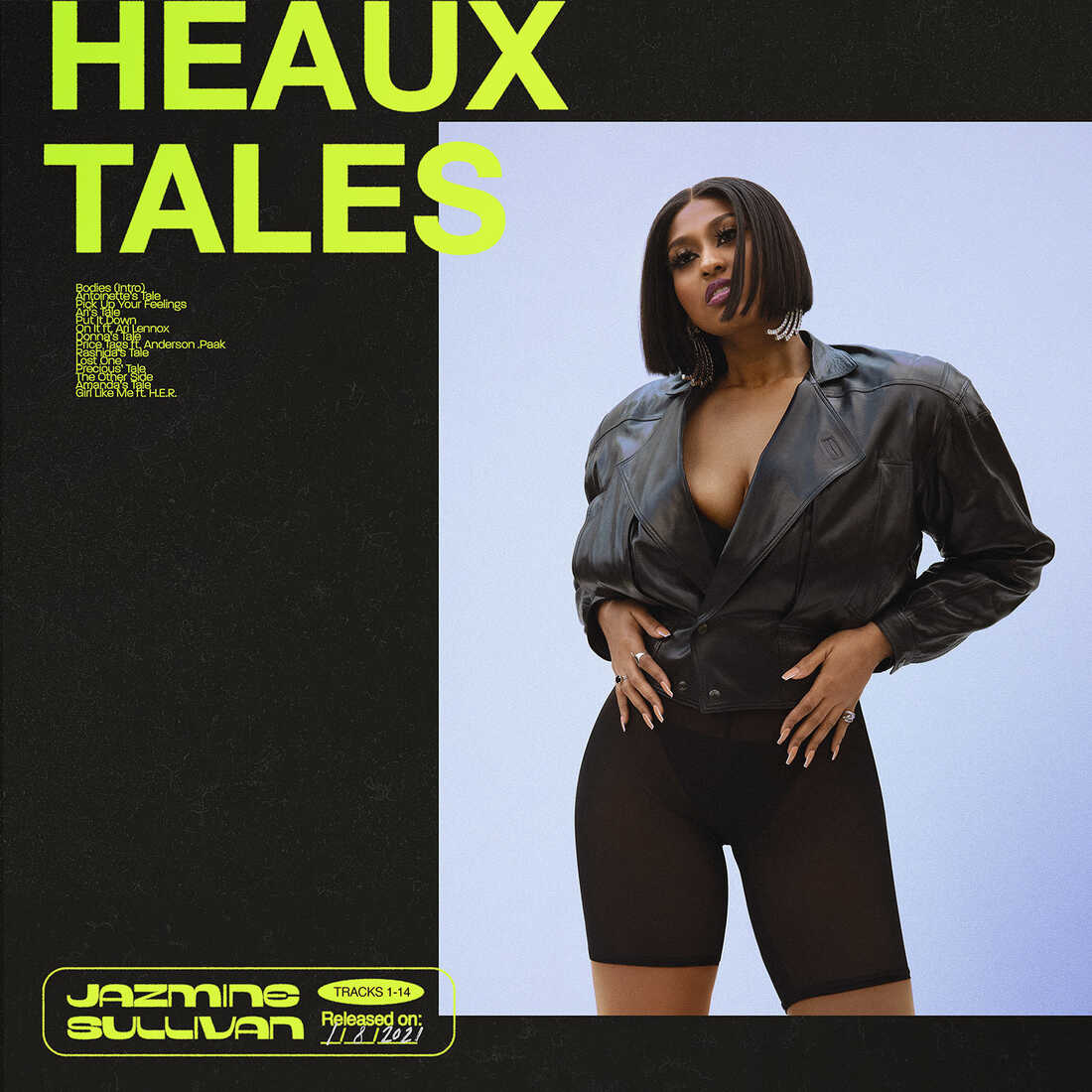
The same year Jazmine Sullivan dropped her 2008 debut album, Fearless, Black feminist scholar Moya Bailey coined the term misogynoir to describe the specific “racialized misogyny aimed at Black women.” One of the hallmarks of misogynistic depictions in music and media, Bailey wrote, was the power to reduce Black women to caricatures in order to justify their poor treatment in society. Over a decade later, Heaux Tales combats these marginalizations, traveling far outside the limits of the Sapphire and the Jezebel (and, more recently, the welfare queen and the BBL baddie), showing off the complicated mélange of what really makes Black girl magic. And she’s got audio receipts to prove it.
Four albums in (Jazmine calls Heaux Tales an EP, NPR Music calls it the year’s best album) the brilliance of Jazmine’s pen game and soulfulness of her vocal performance stands damn-near unmatched. What makes Heaux Tales a career-defining work for the 34-year-old is its clarity to turn inward and make this journey a family affair. Over eight songs interwoven with six spoken word interludes, Sullivan creates a safe space for the women in her life — friends, family, collaborators — to spill their tea. In passing the mic, Jazmine immortalizes her muses. She lets them keep their own contours, but adds light and shading to the themes they offer up filter-free. “Precious’ Tale” unpacks the childhood memories of scarcity that fuel candy-pink Porsche dreams of bagging a millionaire rapper on “The Other Side.” “Ari’s Tale” breaks down the symptoms of being d***matized that lead to the self-diagnosis of “Put It Down” without hope for a cure. “Amanda’s Tale” reveals the crippling insecurity that festers from trying to live up to impossible beauty standards, making “Girl Like Me (feat. H.E.R)” sting that much more. This communal presence helps Jazmine carry the invisible load on her shoulders, too. Whether wading through infidelity on “Lost Ones” or hilariously checking herself on “Bodies (Intro),” (“Get it together, bitch / You don’t know who you home with”), the Philly-hailing star knows she’s got her crew there to listen, laugh and cry with.
Creating community has always been the work of Black women. Recent history has applauded Black women for mobilizing to sway the last U.S. presidential election and use our buying power to create new waves in music, all while simultaneously telling us in courtrooms, in hospitals, in classrooms and in media that we still do not matter. With Heaux Tales, Sullivan lovingly immortalizes the community that has always reminded us we do. —Sidney Madden
◆ Watch Jazmine Sullivan’s Tiny Desk (home) concert
◆ Listen NPR Music’s Album Of The Year interview with Jazmine Sullivan